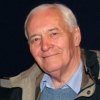Tony Benn

Tony Benn
Anthony Neil Wedgwood Benn, originally known as Anthony Wedgwood Benn or Wedgie Benn, but later as Tony Benn, was a British politician who was a Member of Parliamentfor 47 years between the 1950 and 2001 general elections and a Cabinet minister in the Labour governments of Harold Wilson and James Callaghan in the 1960s and 1970s. Originally a "moderate", he was identified as being on the party's hard left from the early 1980s, and was widely seen as a key...
NationalityEnglish
ProfessionPolitician
Date of Birth3 April 1925
inspirational photography things-in-life
Most things in life are moments of pleasure and a lifetime of embarrassment; photography is a moment of embarrassment and a lifetime of pleasure.
hands president doe
No medieval monarch in the whole of British history ever had such power as every modern British Prime Minister has in his or her hands. Nor does any American President have power approaching this
law people may
There may be a legal obligation to obey, but there will be no moral obligation to obey. When it comes to history, it will be the people who broke the law for freedom who will be remembered and honoured.
thinking people crafts
I think very often the boat-rockers turn out to be the people who are building the craft
fighting trying locks
Change always follows the same pattern. If you come up with something new they try and put you off.If that doesn't work they call you stark raving bonkers.If that doesn't work they lock you up like the suffragettes.Then, after a pause, the change happensand you can't find anyone that doesn't claim to have been fighting for it with you.
views political liberty
I do not share the general view that market forces are the basis for political liberty. Every time I see a homeless person living in a cardboard box in London, I see that person as a victim of market forces. Everytime I see a pensioner who cannot manage, I know that he is a victim of market forces
rights hands years
If democracy is destroyed in Britain it will be not the communists, Trotskyists or subversives but this House which threw it away. The rights that are entrusted to us are not for us to give away. Even if I agree with everything that is proposed, I cannot hand away powers lent to me for five years by the people of Chesterfield. I just could not do it. It would be theft of public rights.
team mean essence
Parliamentary democracy is, in truth, little more than a means of securing a periodical change in the management team, which is then allowed to preside over a system that remains in essence intact. If the British people were ever to ask themselves what power they truly enjoyed under our political system they would be amazed to discover how little it is
christian party church
The Labour party has never been a socialist party, although there have always been socialists in it - a bit like Christians in the Church of England.
war school government
After the war people said, 'If you can plan for war, why can't you plan for peace?' When I was 17, I had a letter from the government saying, 'Dear Mr. Benn, will you turn up when you're 17 1/2? We'll give you free food, free clothes, free training, free accommodation, and two shillings, ten pence a day to just kill Germans.' People said, well, if you can have full employment to kill people, why in God's name couldn't you have full employment and good schools, good hospitals, good houses?
thinking two people
I think there are two ways in which people are controlled. First of all frighten people and secondly, demoralise them.
educational exercise direct-action
Change from below, the formulation of demands from the populace to end unacceptable injustice, supported by direct action, has played a far larger part in shaping British democracy than most constitutional lawyers, political commentators, historians or statesmen have ever cared to admit. Direct action in a democratic society is fundamentally an educational exercise.
victory battle finals
There is no final victory, as there is no final defeat. There is just the same battle. To be fought, over and over again. So toughen up, bloody toughen up.
powerful exercise people
If one meets a powerful person - Adolf Hitler, Joe Stalin or Bill Gates - ask them five questions: 'What power have you got? Where did you get it from? In whose interests do you exercise it? To whom are you accountable? And how can we get rid of you?' If you cannot get rid of the people who govern you, you do not live in a democratic system.